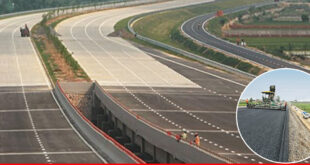CNG was introduced in Pakistan to counter high price of fuel. As a new business venture, many businessmen opened CNG stations to reduce the cost of transportation. Import of CNG kit became a wide market and gained popularity in the transport industry. Introduced in mid 1990s no one predicted the issues arising out of CNG supply, which we witnessing today. As the price of fuel based on international oil prices increased, the demand for CNG in the country gradually increased. CNG kits even today are imported and sold at a premium rate and issuing of licenses to establish CNG pumps countrywide to those who had the capital still on. The CNG industry thrived as a substitute to petroleum usage. Gas supply, which was intended for manufacturing and domestic consumption was diverted to the transportation industry without looking into macro impact of such a decision.
People in Pakistan today are so inclined towards gas use specially the transportation network that phasing out CNG and in result loss of business for many. As gas supply is more directed towards transportation sector, the biggest impact is on the fertilizer sector. Pakistan being an agrarian economy relies on fertilizer for agricultural produce. Fertilizer plants have witnessed loss in production due to shutdown days and non-availability of gas. The government faces a dilemma whether gas should be directed towards transportation or towards manufacturing concerns or to meet domestic household use. The situation now is that CNG is supplied few days in a week whereas the queue in getting a full tank of gas for a vehicle is an ordeal on its own. In order to beat the long tines, people have started reaching the pumps before the sunrise and some start waiting from night time in front of the CNG station.
SSGC frequently announces shut-down days for CNG supply. The transportation sector, which was more reliant on CNG now argue that in absence of CNG supply, they are forced to use diesel with increase fair for the commuters. People even protest against non-supply of CNG as whenever there is top line pressure and revolt, the gas is directed accordingly.
Based on latest figures available, Pakistan is the largest country in the world with the highest numbers of CNG-run vehicles. Iran has 2.88 million vehicles whereas Pakistan has 3.10 million vehicles running on CNG. The government even introduced buses to run on CNG for Karachi. The problem is the transport mafia, which would never let such initiatives come to life, hence these buses are nowhere to be found. There have been talks that Metrobus will be introduced in Karachi. This again seems an impossible task with the existing transport mafia.
Globally not just in Pakistan, it has now been argued and widely understood that gas used for transportation is a waste of this resource. Gas could be better utilized for the manufacturing industry, which would enhance production, create employment and increase GDP in result. With the quantum of vehicles moving on CNG despite availability of pumps, long lines are witnessed which takes hours. The problem can be resolved if petroleum prices are made in line with CNG by reducing the taxation charged on petroleum as well as on CNG. If only the taxation is removed, petroleum price can be reduced by 40 percent whereas CNG price to the consumer can be reduced by 60 percent. The selling price of CNG is being increased by OGRA consistently with no real justification. If one compares international oil prices with Pakistan, it can easily be calculated that the oil price does not correlate with the international movements. There have been revolts from the CNG station owners against shutdown days; however, they primarily seek their own gain than the benefit to the economy. The pricing formula on CNG is beyond anyone’s understanding. In actual tem CNG to the public should not be sold for more than Rs15 per kg. Secondly, the CNG mafia is politically connected and easily able to influence the price as witnessed in the past, so this should be handled. There have also been talks and pressure from CNG owners to further increase price considering the shutdown days and inflation. It is easy to say that CNG should be pulled back from the transportation sector. With CNG used heavily in transportation, the government and OGRA both are on a swing going to-and-fro with no solution visible except to keep the CNG independent for only industrial use.
With the current CNG prices, despite the long queues of vehicles, the only winner is the government and the CNG owners who are making windfall profits. The CNG association themselves claim that even if rates are reduced, the business will still be profitable keeping with low costs. CNG owners do not want to lose the profit they have been earning and want the prices to go higher. The transportation sector consumes 8 percent of the natural gas produced in Pakistan.
It is unfortunate that no clear policy exists how to manage CNG in Pakistan. The prime focus should be household and the industrial sector whereas CNG use for transportation should be phased out. The government brings the prices of petroleum down removing the tax, which is currently averaging 32 to 35 percent per liter. Additionally price of CNG should further be increased to the point where petroleum is a cheaper alternative. Lease of CNG stations currently with a tenor of 15 years should be removed with an option to have the station converted to petroleum for no additional charges. Import of CNG cylinders would be completely stopped and fine heavily those who do import. Banks should be advised not to establish any LCs, which pertains to import of CNG cylinders. There have been discussions for rationing gas to different industries based on their requirement, which would once again include gas holidays. The textile sector has already been affected with non-availability of gas especially in Punjab. Thinking on such lines would not yield any results as gas is required by every industry and its availability, the better it would be to keep the manufacturing facility running with production. Gas use helps in reduction of production cost but in turn the production cost increases when industries switch to electricity and oil use and even it is not suitable for the manufacturers in the long run.
The new government seems to be proactive to help resolve the CNG issue and had discussions with all stakeholders to phase out CNG completely. The manufacturing sector including textiles and fertilizer has welcomed this initiative. The fertilizer plants have been running on sub optimal level which needs to be increased. The loss in government revenue through petroleum could be adjusted with high duties and taxes on non-essential imports e.g. cigarettes and products already produced locally. This action would immediately result in closure of CNG businesses. Additionally, taxation on petroleum should be reduced, compensated through taxation on non-essential imports which will not hamper government revenue.
Such an action would assist the economy through increase in employment, reduced manufacturing cost and increase in GDP through enhanced production. Significant gain will be witnessed in the fertilizer sector as uninterrupted supply of gas would help production of urea at a lower price, which in turn will reduce the price of agricultural produce reducing agricultural inflation.
 PAGE Blog Business Weekly Magazine
PAGE Blog Business Weekly Magazine

